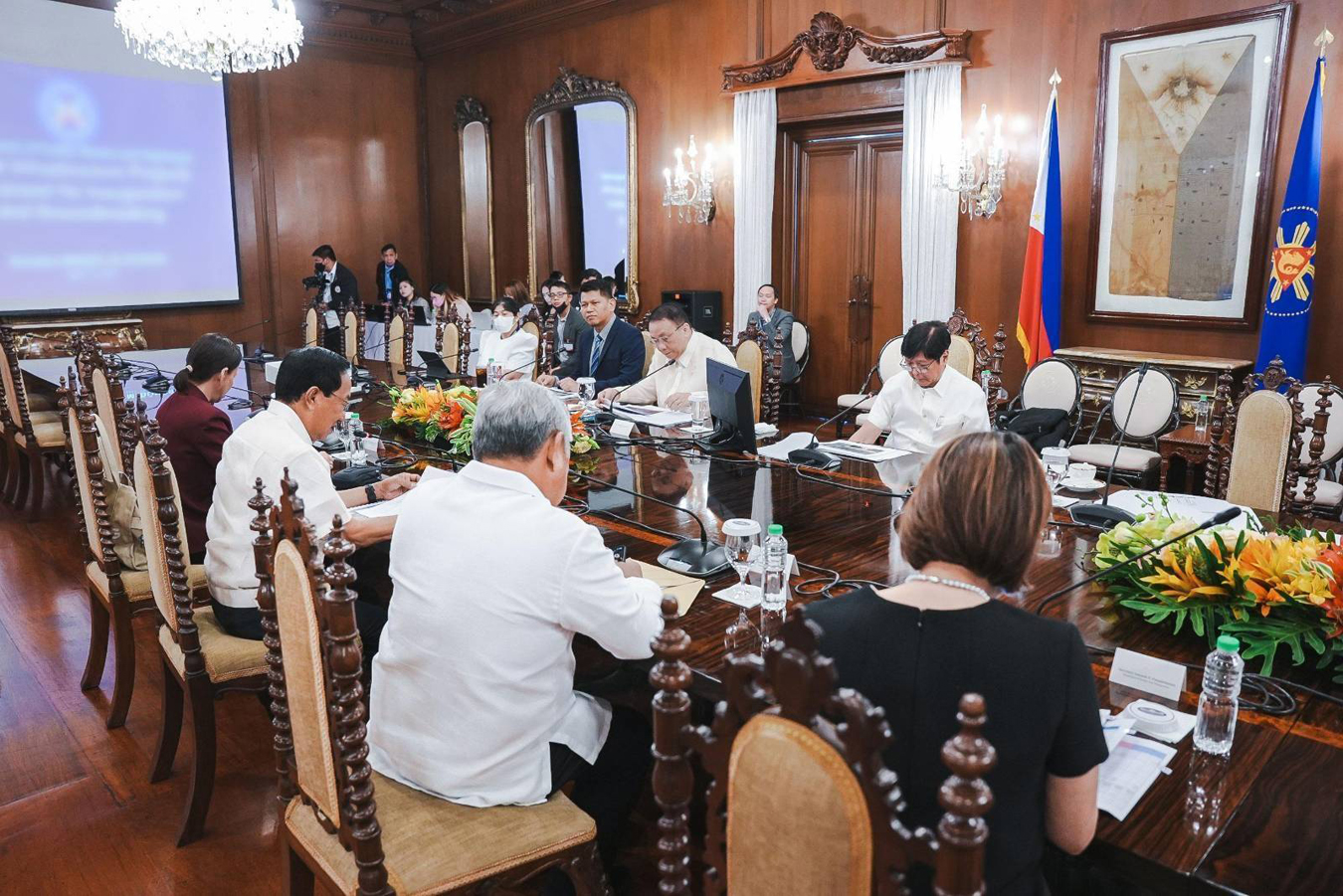
President Ferdinand R. Marcos Jr. said on Tuesday the government would be putting up several cold storage facilities in various fish ports in the country to address the spoilage of the fishermen’s catch.
“So we decided that one of the areas that was identified was the spoilage of the fish doon sa handling from galing sa bangka, galing sa fishing boat, hanggang sa bagsakan, hanggang sa palengke napakalaki ang nagiging spoilage,” the President noted in a video interview after his meeting with officials of various departments and attached agencies.
The President presided over a sectoral meeting attended by officials of the Department of Agriculture (DA), Bureau of Fisheries and Aquatic Resources (BFAR), Department of the Environment and Natural Resources (DENR), Laguna Lake Development Authority (LLDA), Department of the Interior and Local Government (DILG) and the Cooperative Development Authority.
President Marcos called for the Tuesday meeting to discuss the Philippine Fisheries Program, specifically on how to address the declining fishery production and reduce post-harvest losses.
“At ang naging solusyon diyan ay maglagay ng cold storage facilities doon sa mga bagsakan ng isda para ma-preserve naman ‘yung isda at hindi natin kailangan itapon ang maraming nasisira, napapanis na isda,” President Marcos added, noting that move is also to improve the supply of fish in the country.
Current fish spoilage, according to BFAR, is between 25 to 40 percent because of the shortage in post-harvest equipment like blast freezer and ice making machines as well as facilities like cold storage warehouse and fish landing sites.
The chief executive pointed out that if the country would be able to lower the spoilage of the catch between 8 to 10 percent, the Philippines would no longer depend on importing fish from other nations.
The President said the plan is to build 11 more cold storage facilities on top of those already being constructed at various ports in the cities of General Santos and Cagayan de Oro, adding that he expects the cold storage facilities to be operational by the end of this year
“So gumawa kami ng plano, may plano ongoing. Nagtatayo tayo ng cold storage facilities. May expansion sa mga ibang lugar kagaya ng GenSan, ng CDO, mayroon na silang facility at mayroon pang mga ilalagay sa ibang lugar. Altogether 11 areas we will be installing cold storage,” President Marcos explained.
“Doon sa mga mas maliliit na bagsakan ay mag-provide naman kami ng ice-making machine para naman puwedeng ilagay kaagad sa yelo para tumagal naman na sariwa ‘yung mga isda,” the chief executive pointed out.
The President also underscored the need to improve the aquaculture in the country by modernizing the fishponds to boost production.
“At ang pinakamalaking problema na nakita namin is the provision of credit na binibigyan – may pautang para sa ating mga fishermen para naman meron silang gagamitin, mayroon silang puhunan para pagandahin ang kanilang fishpond,” President Marcos said.
The President added: “Tapos ‘yung conversion to fish cage na mas malaki ang production kasi ‘pag fish cage. So ‘yung ganyang klaseng teknolohiya kailangan natin ituro at syempre kailangan natin bigyan ng pondo para ‘yung mga bagong gamit, ‘yung mga kailangan na supplies ay may makuha naman ang ating mga fishermen.”
President Marcos said they are also looking at mariculture to bolster the country’s food security and fish output.
“Mayroon mga iba’t ibang lugar sa Pilipinas na mayroong mga maliliit na operation tungkol diyan. Ngunit sa aking palagay dahil malaki ang market para sa mga – ‘yung garoupa, ‘yung mga siganid, ‘yung mga snapper, ‘yung mamahalin na isda ay pwede pa natin i-export ‘yan kung maganda ang ating sistema,” the chief executive said.
“Kaya’t tiningnan namin gagawa kami ng plano, ng DA (Department of Agriculture), Fisheries, gagawa kami ng plano para ma-encourage, para naman hihikayatin natin na ‘yung ating mga negosyante pumasok sa mariculture para matulungan ang ating mga mangingisda para matulungan ang kanilang value added,” the President added.
Mariculture or marine farming is a specialized branch of aquaculture involving cultivation of marine organisms for food and other animal products, in enclosed sections of open ocean, fish farms built on littoral waters, or in artificial tanks, ponds or raceways which are filled with seawater. (PND)

